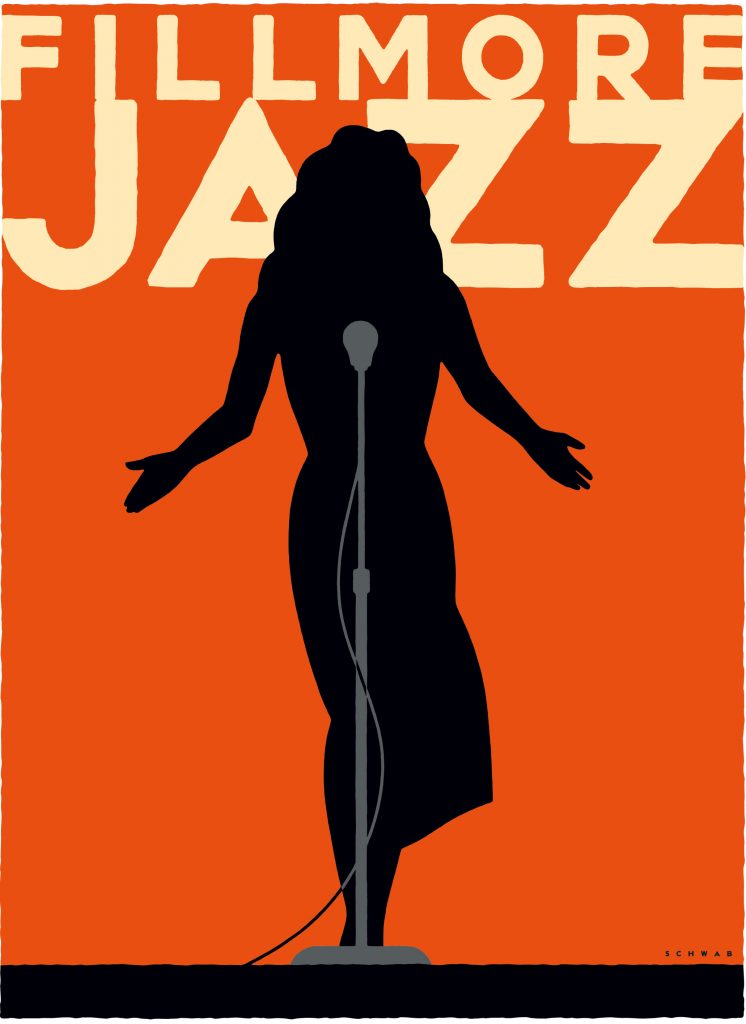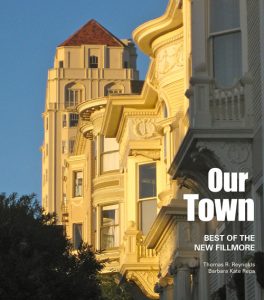By Chris Barnett
YOSHI’S ON FILLMORE is already booked this summer with acts lined up before the ownership changed on July 1.
But it almost went dark. Just a few weeks ago, the mood at Yoshi’s was deathly. Backstage, insiders could practically hear a New Orleans funeral band playing Just a Closer Walk With Thee, the traditional dirge of the deceased.
But on the way to the cemetery, a miracle happened. Almost every investor with a financial stake in Yoshi’s — owners, borrowers, lenders, private citizens, city and state governmental agencies — took a haircut, and in some cases a real scalping, so the club could emerge from bankruptcy and survive. Investors who despised each other set aside their differences and, in some instances, ponied up more cash or personal commitments to rescue a dream that had turned into a financial nightmare.
There is no one savior, no hero here. It’s an arcane, complex “workout,” a long drawn-out mediation straight out of Wall Street but with slightly smaller numbers. Based on interviews with most of the key players, here’s how the deal went down.
A decade ago in 2004, the San Francisco Redevelopment Agency made a $4.4 million loan to Yoshi’s San Francisco LLC, which was two-thirds owned by Yoshie Akiba and Kaz Kajimura and one-third by San Francisco developer Michael E. Johnson through an entity known as Fillmore Jazz Clubs. The aim: to build a San Francisco-based version of Yoshi’s Oakland, a three-decades-old jazz club, and to breathe new life into the nascent Fillmore Jazz District.
But with construction delays and cost overruns, the tab mushroomed to $15 million for tenant improvements alone. The Redevelopment Agency — which had gutted the Western Addition, destroying thousands of Victorian homes in the 1960s and wiping out the economic vitality of lower Fillmore — loaned still more money to Yoshi’s, for a total $7.2 million.
At the same time, the city of San Francisco loaned $5.5 million to help Johnson finance construction of the Fillmore Heritage Center, which houses Yoshi’s, 1300 on Fillmore and an underground garage. The massive mixed-use project is built on land leased from the successor to the Redevelopment Agency. Johnson subleased space to Yoshi’s for $45,000 a month rent, plus maintenance fees.
Yoshi’s San Francisco opened in November 2007, a boom-time for San Francisco, the U.S., the real estate and financial markets and for Fillmore’s brand new jazz emporium and top-flight sushi restaurant. But within a year, global headlines screamed “meltdown.”
As Yoshi’s San Francisco struggled, Johnson’s Fillmore Development Commercial group defaulted on its loan from the city, according to an informed source, who quickly added: “Even though they weren’t making payments, the city would be reluctant to foreclose. The club would go dark, which would have been disastrous for the neighborhood — and the city would still have to find a new tenant.”
Kajimura found himself saddled with heavy debt and complained the high rent and maintenance fees were crushing him. Kajimura wanted out and was open to a workout. His minority partners, Johnson and Steven Mayer, a local investor who had teamed up with Johnson, wanted nothing to do with any kind of restructuring, maintaining they were in it for the long haul. In a legal move that angered his partners, Kajimura threw Yoshi’s San Francisco into bankruptcy in 2012. Says one government official close to the Yoshi story from the beginning: “Things were very hostile between Michael and Kaz. But then Kaz could have liquidated in a Chapter 7 bankruptcy and everyone would have lost everything. To his credit, he didn’t.”
Instead, the settlement mediated by a bankruptcy judge resulted in Johnson forming a new company called Fillmore Live Entertainment that will assume his one-third, or $2.4 million, of Yoshi’s $7.2 million liability to the successor to the Redevelopment Agency.
Kajimura and his partners lost all their equity in Yoshi’s San Francisco, estimated at $2 million. At this point it is still unsettled, but it appears they will get out from under the $4.8 million owed to the Redevelopment Agency since the debt is unsecured. The agency can’t legally collect on it and has agreed to write it off. A city source emphasizes: “We did not forgive this loan to Kaz. It was lost with the bankruptcy.”
Michael Johnson, whose new company, Fillmore Jazz Club, owns 72 percent of Fillmore Live Entertainment, lost all his equity in Yoshi’s as well. But he has wound up at the helm of an entertainment, food and drink enterprise that generated $10 million in annual revenue even in hard times. That doesn’t include the rental and fee income derived from other aspects of the mixed-use complex.
Johnson, his investors and his partner Mayer, who lost equity of approximately $1.2 million when Yoshi’s San Francisco was dissolved in the workout, are ponying up $500,000 apiece to strengthen Fillmore Live Entertainment.
The City of San Francisco, now responsible for the $5.5 million floated to Johnson in construction loans, is still waiting for full repayment of the debt. And as part of the workout, Johnson has asked the city for a reduction in rent during the transition period. City Hall, like the Redevelopment Agency before it, does not want to rock the boat on the fragile Fillmore Jazz District, so the city will take less rent temporarily.
It appears that every person and every entity with a financial stake in the venture has suffered financial losses. But the club and restaurant currently known as Yoshi’s will live on and have an opportunity to reinvent itself under new management.
Filed under: Music





